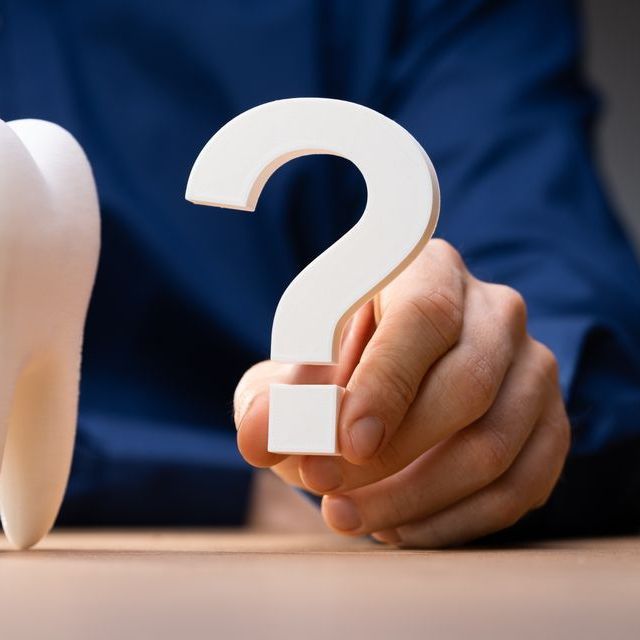Sherbrooke 819 346-6312 / Stanstead 819 876-5298 / Coaticook 819 849-2074
Sherbrooke 819 346-6312 / Stanstead 819 876-5298 / Coaticook 819 849-2074
Frequently Asked Questions

General questions
-
WHAT IS THE OCCLUSION BALANCE OF A DENTAL PROSTHESIS?
This is the way in which the teeth of the upper jaw close and oscillate on the teeth of the lower jaw. Occlusion balance maximizes masticatory function and reduces temporomandibular pain.
-
WHAT IS GINGIVAL BONE RESORPTION?
In the absence of tooth roots, which normally transmit masticatory forces to bone cells, bone loss is continuous and inevitable. Gums undergo resorption at an average rate of one millimetre per year.
-
HOW CAN I SLOW DOWN MY BONE RESORPTION?
To date, dental implants remain the only solution for preventing bone resorption. Although this option is not available to everyone, a well-fitted prosthesis can nevertheless slow bone resorption while offering comfort and stability.
-
HOW MUCH DO DENTURES COST?
Because each mouth is unique, it is difficult to establish the exact cost of a partial, complete or implant-supported prosthesis until you have assessed the needs, requirements and materials used to design it. An evaluation at the Clinique de denturologie Larochelle will help you understand the different options available to you.
Partial dentures
-
WHO CAN BENEFIT FROM PARTIAL DENTURES?
Partial dentures are for people who are missing one or more teeth and want to improve their chewing ability to prevent their oral condition from deteriorating.
-
WHAT ARE THE ALTERNATIVES?
There are three types of partial dentures: acrylic, with a metal skeleton or with precision attachments. If you are considering a permanent solution, it is possible to replace edentulous spaces with fixed bridges or implants. During a preliminary examination, your denturist will be able to suggest the best treatment for your situation.
-
HOW LONG DOES THIS TREATMENT LAST?
There are generally seven stages:
- Primary Imprints
- The Final Prints
- Taking Measurements
- The Choice of Tooth Shape and Shade
- Fitting
- Final Adjustment
- The Installation
-
HOW MUCH DO DENTURES COST?
Because each mouth is unique, it is difficult to establish the exact cost of a partial, complete or implant-supported prosthesis until you have assessed the needs, requirements and materials used to design it. An evaluation at the Clinique de denturologie Larochelle will help you understand the different options available to you.
Complete dental prosthesis
-
WHO IS A COMPLETE DENTAL PROSTHESIS INTENDED FOR?
Full dentures are for people who no longer have any teeth, but enough gum tissue to support and stabilise a removable prosthesis.
-
WHAT ARE THE ALTERNATIVES?
There are three types of complete dentures: semi-precision, balanced and bio-functional. They are made to different standards of fit, which means that a treatment plan can be adapted to each patient's aesthetic, functional and budgetary expectations. During a preliminary examination, your denturist will be able to suggest the best treatment for your situation.
-
HOW LONG DOES THIS TREATMENT LAST?
There are generally seven stages:
- Primary Imprints
- The Final Prints
- Taking Measurements
- The Choice of Tooth Shape and Shade
- Fitting
- Final Adjustment
- The Installation
Of course, in the first few months after fitting, it's not uncommon to have to adjust your new prosthesis a few times for greater comfort.
Dental prosthesis on implants
-
WHAT IS A DENTAL IMPLANT?
A dental implant is nothing more and nothing less than an artificial tooth root made of titanium. Inserted into the upper or lower jawbone, the implant creates one or more anchorage points to which the implant-supported prosthesis is attached
-
WHO IS THIS PROSTHETIC TREATMENT FOR?
Anyone who has lost one or more teeth can have dental implants. Dental implants require the patient to be in good general health and have an oral condition that is conducive to this type of treatment. Among the factors to be considered, the quantity and density of the gum bone are essential for post-operative success. Dental implants are contraindicated in certain cases of chronic disease. During a preliminary examination, a dental implant professional will be able to determine whether this treatment is right for you.
-
WHAT ARE THE ADVANTAGES OF IMPLANT-SUPPORTED PROSTHESES?
- It offers unrivalled comfort;
- It attaches directly to the implants, giving it unrivalled stability;
- It provides an aesthetic appearance and a chewing function comparable to natural teeth;
- It improves digestive functions;
- It has no harmful effect on natural/resting/existing teeth;
- It is biocompatible
-
IS PLACING IMPLANTS PAINFUL?
The majority of people who have undergone the procedure, which generally lasts no more than an hour, describe the post-operative period as similar to that of extracting a few teeth. Anti-inflammatory drugs are effective in relieving pain, and in most cases the healing period does not exceed 3 months.
-
WHAT IS THE SUCCESS RATE FOR THIS PROCEDURE/IMPLANT PLACEMENT?
After more than 30 years of clinical studies and over a million cases treated worldwide, statistics confirm an average success rate of 95% for individual dental implants. In the other 5% of cases, we observe conditions that are detrimental to post-operative success, such as excessive smoking.
-
HOW LONG DO I HAVE TO BE WITHOUT TEETH AFTER THE OPERATION?
Don't worry, it is possible to modify your old prosthesis so that you are not left without teeth during the healing period. Naturally, your new prosthesis cannot be made until the strength of your dental implants has been confirmed.
-
HOW LONG DO DENTAL IMPLANTS LAST?
They are designed to last a lifetime. Be sure to see your dental professional every year. Good oral hygiene and proper adjustments are essential to ensure that your implants stay in place and your gums stay healthy.
-
HOW LONG DO IMPLANT-SUPPORTED DENTAL PROSTHESES LAST?
With annual monitoring and good daily maintenance. You can expect a lifespan of 5 to 8 years, after which a relining may be necessary.
Why choose Larochelle?
Since 1985, the Clinique de Denturologie Larochelle has become a benchmark for dental prostheses. The expertise of this family business is based on a passion for recreating complete or partial dentitions that meet the expectations and needs of their clients. The Clinique de Denturologie Larochelle uses the latest technologies. Free personalized evaluation.



